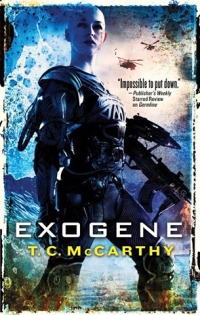The Coward's Tale by Vanessa Gebbie
 Wednesday, February 22, 2012 at 7:39PM
Wednesday, February 22, 2012 at 7:39PM 
First published in UK in 2011; published by Bloomsbury USA on February 28, 2012
When we take the time to look beneath the surface, people are not always what they seem to be. Sometimes those who seem cowardly are not cowards at all. Sometimes atonement is mistaken for guilt. In her unapologetically humane novel, Vanessa Gebbie reminds us of the patience and effort that is required to understand another person, and of the rewards awaiting those who make the effort.
Eccentric doesn’t begin to describe the characters in The Coward’s Tale. In Chaucer-like fashion, their stories are related by Ianto Passchendaele Jenkins, the town beggar, in exchange for coffee and toffee. Some of the stories teach lessons; some are gossipy; some are funny and some are heartbreaking. Occasionally it’s difficult to grasp the point of a particular story, but getting to know the peculiar characters is reason enough to read The Coward’s Tale.
Jenkins has a story about everyone in town, as well as their ancestors. A few examples will give a flavor of Gebbie’s creations: Icarus Evans, the shop teacher, is consumed by the challenge of making a wooden feather that will float on currents of air; he never stops trying to achieve the impossible. Jimmy Half (for halfwit or half-alive) Harris, born dead and buried before coming to life, cannot speak, although he was born to be a poet. Factual Philips, a deputy librarian who covers his walls with diagrams, maps, charts, and lists, with particular attention to the clues and deductions that lead Sherlock Holmes to the truth that lurks behind mystery, finally gets a chance to solve a mystery of his own. Also obsessed by maps is the town undertaker, Tutt Bevan, who revisits his childhood as he walks through the town in a straight line. Touching stories explain why the son of a man who died in a coal mine became a window washer, why the son of a thief sneaks into houses at night, why Ianto tells stories while others toil.
In addition to Ianto, a boy named Laddy Merridew furnishes a common thread to bind the stories together. Laddy wanders about the town, observing and interacting with its inhabitants, feeling lost and unsettled, worrying about his divorcing parents and trying to decide where he should live, listening to Ianto’s stories and wondering whether they are true or just more lies told by an adult. In many respects Laddy is a young version of Ianto, while Ianto sees his lost brother in Laddy.
As they progress, Ianto’s stories become more serious. They begin to echo each other: broken windows and shadows and reflections are recurring images. The stories share and develop themes. Maps are bad because “they stop us from finding new places” or they “make places different to how they are in our heads,” although a self-made map can help you confront fears and find your own path. A nearby coal mine inaptly named the Kindly Light appears in many of the stories, eventually becoming the novel’s central focus. It is the site of a disaster that worked unexpected changes upon the town and its people -- Ianto most of all.
Witty, wise, and charming, intense and powerful, The Coward’s Tale offers a remarkable blend of humor and pathos. The novel illustrates the importance of storytelling as an instrument of healing and community bonding. Ianto’s stories inspire hope even in their saddest moments. They encourage forgiveness and understanding as they reveal the frailties and faults of the townspeople. The sad but perfect ending is the final knot that ties the stories together.
Gebbie writes musically rhythmic prose, forming sentences as sharp and shimmery as broken glass. Both in style and content, The Coward’s Tale is an outstanding novel.
HIGHLY RECOMMENDED
 TChris |
TChris |  Post a Comment |
Post a Comment |  HR,
HR,  Vanessa Gebbie in
Vanessa Gebbie in  General Fiction
General Fiction 


